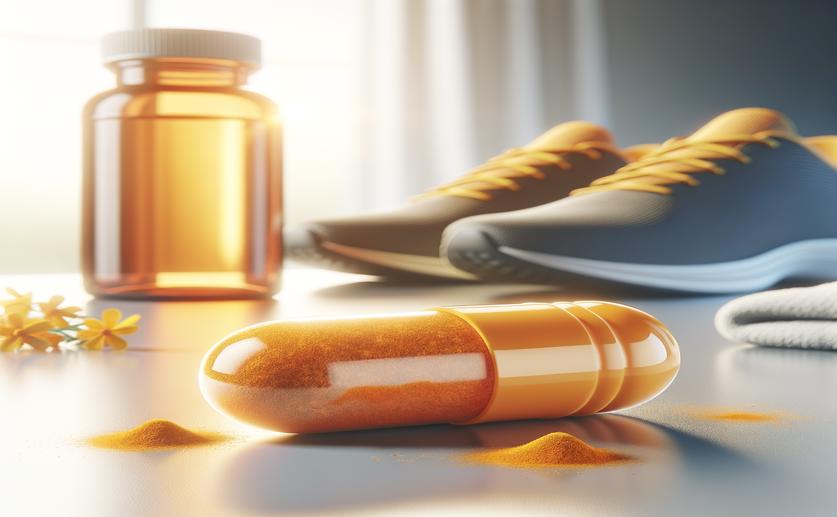
Curcumin Supplements and Exercise: From Cellular Benefits to Health Improvements
Jenn Hoskins
31st May, 2024

Image Source: Natural Science News, 2024
Key Findings
- The study from Hubei Normal University found that curcumin supplementation can enhance exercise performance and aid in recovery
- Curcumin helped reduce muscle damage, discomfort, swelling, and oxidative stress during and after exercise
- Nano-formulated curcumin showed better absorption and efficacy, leading to more pronounced benefits compared to regular curcumin
MedicineHealthFitness And Diet
References
Main Study
1) Curcumin and its nano-formulations combined with exercise: From molecular mechanisms to clinic.
Published 30th May, 2024
https://doi.org/10.1002/cbf.4061
Related Studies
2) Impact of curcumin supplementation on exercise performance and muscle damage after a soccer match: a double-blind placebo-controlled cross-over study.
3) Transcriptomics and metabonomics study on the effect of exercise combined with curcumin supplementation on breast cancer in mice.



 24th April, 2024 | Jim Crocker
24th April, 2024 | Jim Crocker